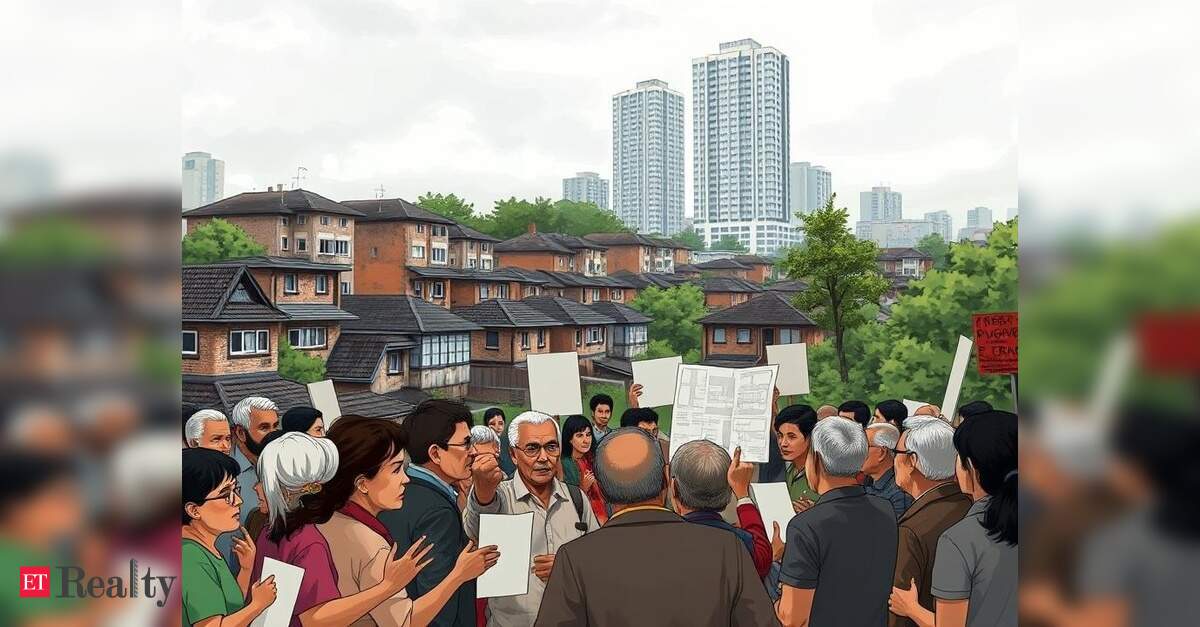
Residents of a housing society in Khar were taken aback to discover that some members of the managing committee indulged in an all-expenses-paid trip to Bangkok, sponsored by a builder.
The son of the society chairman, who runs a small software firm, secured contracts worth ₹6.5 crores, while his sister, a doctor, landed a high-ranking position at a hospital.
Meanwhile, the secretary of another society, who owns a printing press, received a lucrative deal to print annual reports for a construction firm.
In a society located in Vile Parle, a female committee member has taken legal action against the managing committee for assigning her a flat on a lower floor instead of the higher floor she believed she was entitled to.
The redevelopment sector in Mumbai has emerged as a golden opportunity, attracting not just developers targeting prime real estate but also lesser-known entities—the all-powerful managing committees (MCs) of housing societies. These small groups initiate redevelopment efforts, negotiate with developers, and ultimately persuade society members to make choices that benefit them.
A diverse array of individuals from the redevelopment industry—including builders, legal professionals, society members, architects, and activists—discussed the essential role and influence that MCs hold over developers vying for competitive bids.
Advocate K K Ramani, representing several housing societies in their redevelopment journey, emphasized the MCs’ dedication, stating, “They invest time and effort. Ultimately, someone has to make decisions, whether favorable or unfavorable. It’s a role that often goes unappreciated; they can’t please everyone.”
While residents now demonstrate greater awareness of their rights and keep MCs accountable, insiders have indicated that various sweeteners for MC members from builders continue to exist.
According to Ramani, the MCs he interacts with are dutiful and don’t compromise the welfare of other members, highlighting a shift from two decades ago when members relied heavily on MC decisions during redevelopment. Nowadays, members are more informed about their entitlements.
However, sources informed TOI that hidden incentives for MC members remain prevalent. “Builders will offer preferential treatment to these members, such as enhanced amenities, larger spaces at reduced rates, or complimentary interiors for their new flats. They might even place an MC member’s redeveloped unit on a higher, ocean-facing side,” they reported.
A developer, who requested anonymity, noted that his dealings with MCs indicate that “25% are sincere, while 75% have ulterior motives.” He explained that some MC members may demand expanded living space, while others seek financial compensation.
He also accused various “project management consultants” (PMCs) hired by MCs of becoming “glorified brokers” engaging in corrupt practices, extracting money from developers for redevelopment selection.
Another developer, managing several projects in the sought-after Bandra-Khar area, claimed that some PMCs and MCs “manipulate tenders” to secure projects exclusively for certain builders.
“These collusions (a synergy between PMCs and MCs) commonly result in kickbacks ranging from ₹5 to 10 crores in prime areas, making redevelopment a substantial financial opportunity for them,” he noted. He expressed surprise that many of these dubious MC members hail from affluent backgrounds.
Housing activist Chandrashekar Prabhu, advocating for self-redevelopment, revealed that some builders inflate their feasibility analysis for projects. “These builders pay significant amounts to office bearers to endorse PMCs on their payrolls to manipulate calculations, making it seem like they will barely profit from redevelopment. In return for persuading members to agree to a PMC, architects, structural engineers, and other consultants reward selected MC members and office bearers. Builders frequently provide upfront payments to those office bearers who can identify families willing to sell their flats. Moreover, if they can convince all members that the proposed deal is optimal, proactive office bearers are often compensated with free flats in future projects. For every decision enhancing the builder’s profits, these office bearers receive their share of the benefits,” he stated.
Advocate Vinod Sampat highlighted the positive aspects of MCs, noting that they help safeguard the interests of society members. “Many committee members possess expertise in various fields and are well-informed. Most decisions are made transparently,” he commented. Nonetheless, he acknowledged the darker side, where an MC may collude with the developer. “The corrupt ones will intentionally leave gaps in development contracts that shift tax responsibilities to the members rather than the builder,” he warned, adding that arbitration with the builder can financially cripple the society.




